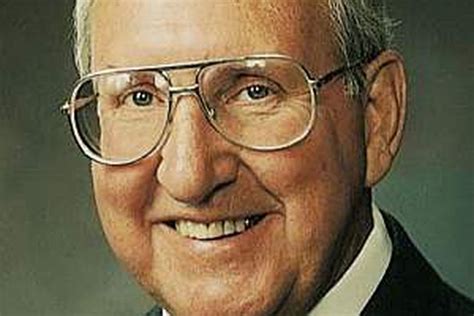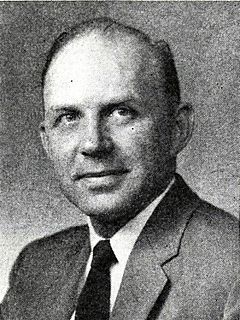A Quote by Walter Hilton
Some people understand the charity of our Lord and are saved by it; others, relying on this mercy and kindness, continue in their sins, thinking that it may be theirs whenever they wish. But this is not so, for then they are too late and are taken in their sins before they expect it, and so damn themselves.
Related Quotes
The Lord never came to deliver men from the consequences of their sins while yet those sins remained...Yet men, loving their sins and feeling nothing of their dread hatefulness, have, consistent with their low condition, constantly taken this word concerning the Lord to mean that he came to save them from the punishment of their sins.
We are saved from nothing if we are not saved from sin. Little sins are pioneers of hell. The backslider begins with what he foolishly considers trifling with little sins. There are no little sins. There was a time when all the evil that has existed in the world was comprehended in one sinful thought of our first parent; and all the now evil is the numerous and horrid progeny of one little sin.
Apologizing for our past sins may reveal character and for a time lessen anti-Americanism abroad, but if it is done without acknowledging that the sins of America are the sins of mankind, and that our remedies are so often exceptional, then it only earns transitory applause—and a more lasting contempt that we ourselves do not believe in the values we profess.
Nothing can tend so much to humble us before the mercy and justice of God as the consideration of His benefits and our own sins. Let us, then, consider what He has done for us, and what we have done against Him; let us call to mind our sins in detail, and His gracious benefits in like manner, remembering that whatever there is of good in us is not ours, but His, and then we need not be afraid of vainglory or of taking complacency in ourselves.
We are not to look upon our sins as insignificant trifles. On the other hand, we are not to regard them as so terrible that we must despair. Learn to believe that Christ was given, not for picayune and imaginary transgressions, but for mountainous sins; not for one or two, but for all; not for sins that can be discarded, but for sins that are stubbornly ingrained.
It is essential that we renew our covenants by partaking of the sacrament. When we do this with a sincere heart, with real intent, forsaking our sins, and renewing our commitment to God, the Lord provides a way whereby sins can be forgiven from week to week. Simply eating the bread and drinking the water will not bring that forgiveness. We must prepare and then partake with a broken heart and contrite spirit. The spiritual preparation we make to partake of the sacrament is essential to receiving a remission of our sins.
Baptism by immersion for the remission of sins is an essential covenant to make with the Lord. Faith and repentance precede this ordinance. Confirmation and the gift of the Holy Ghost follow baptism. Acceptance of these first principles and ordinances may obtain for us a remission of our sins and assure our salvation. In the ordinance of the sacrament, we regularly renew this and other covenants, and by complying with our part of the covenant, we receive the Spirit of the Lord to be with us.































